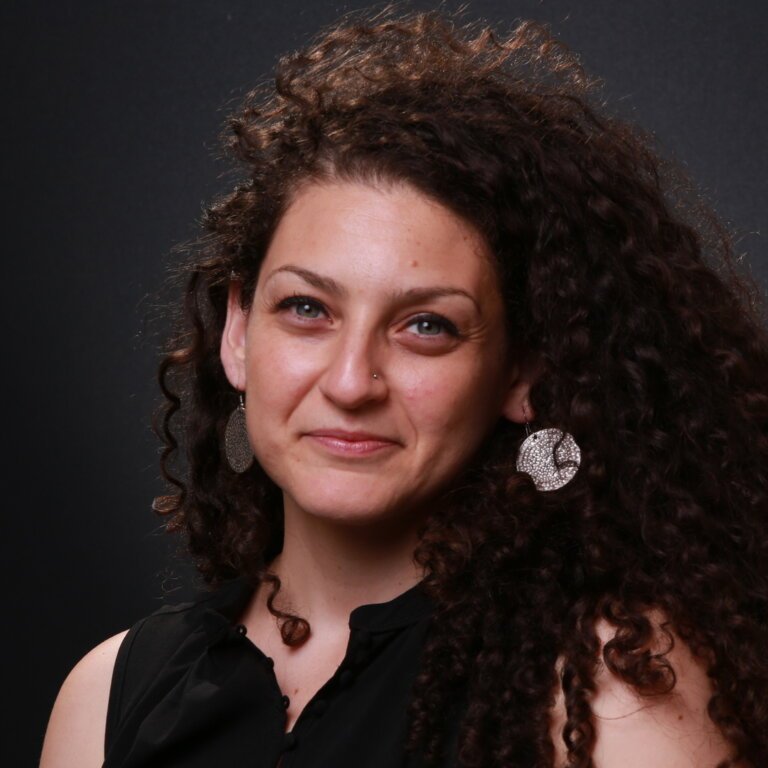The fraud of the "anti-Zionist" label: the Lara Sheehi case
Dr. Lara Sheehi, professor at George Washington University
March 30, 2023
by Kathryn Shihadah
An article in the Jewish periodical Forward entitled “University clears anti-Zionist professor after discrimination claim,” revealed the exoneration of a George Washington University professor who had been charged with antisemitism.
According to the article, a complaint was filed “following a claim that her views on Israel had created a hostile environment for Jewish students.”
Dr. Lara Sheehi
The organization performing the investigation found no wrongdoing on the part of Professor Lara Sheehi.
In spite of Sheehi’s vindication, she remains saddled with the label “anti-Zionist,” which arguably carries with it a connotation of hostility. That is, her actions can not quite be censured, but her character is tainted – she harbors ill will toward a group. She is “anti-.”
Folks who are designated anti-Zionist are actually for something: Palestinian rights. Why not identify them as “pro-Palestinian rights”?
This is not just a matter of semantics. The term defines the situation more accurately. Those opposing Zionism are not fighting against something as much as they are fighting for something.
Opponents of Zionism – especially Palestinians themselves – are in the fight for one reason: to see Palestinians get equality, self-determination, and human rights. The thing that stands in the way happens to be Zionism. In order to get to Palestinian rights, we have to go through Zionism.
The fact that Zionism is a project of Jewish individuals is irrelevant.
If the Zionist project were being carried out by Swedish people, or bus drivers, or ornithologists, it would still have to end.
“Zionism has to end” is not the same as “Israel has to be destroyed” or “Jews have to be wiped out.” Most Palestinians and their allies will tell you that what they seek is not the eradication of Jews or Israel, but equality, self-determination, and human rights.
Supporters of Israel have persisted in equating anti-Zionism with antisemitism, not because it’s true (it’s not), but because it’s effective: what better way to shut down a debate about Palestinian rights than to “play the antisemitism card”? It immediately delegitimizes and muzzles the speaker, and the issue goes away. Zionism lives to see another day of oppressing Palestinians, uninterrupted.
(An interesting experiment would be to affix the label “anti-Palestinian rights” onto those who support Zionism. The effect of Zionism is, after all, to dismantle the rights of Palestinians to their land, self-determination, and equality.)
Another academic example is pertinent. The campus of the Borough of Manhattan Community College (BMCC), part of the CUNY system, recently hosted an exhibit called “Visual Timeline of Occupied Palestinian Land,” which included statements that reflected poorly on Israel (for example, that it employed “settler colonialism, military occupation, land theft, and ethnic cleansing” against the Palestinian people).
The display was organized by BMCC’s Social Justice and Equity Center, which has as its stated purpose to “educate and engage the BMCC community on advocacy, allyship and human rights topics, that shape the realities of students in and out of the classroom…[and] to amplify awareness…and foster healing.”
The display made some Jewish students and faculty “upset.”
Rather than using the opportunity to get educated on the topic and acknowledge the realities of their Palestinian fellow students, or even engage in a healthy debate on the issue and foster healing, they labeled the exhibit as “deeply antisemitic” and pressured the BMCC administration until they removed it.
Problem solved. Zionism lives to see another day of suppressing the facts of the Palestinian plight.
If an individual who happens to be Jewish and supports Israel, finds him/herself in a space in which Zionism is challenged, that individual might feel uncomfortable. They might not like being reminded that the project they value is causing oppression and violence against another people.
They are not in this moment experiencing antisemitism. They may be experiencing unwelcome guilt or shame, anger, regret, or some other negative emotion. This is not a reason to silence the speaker and perpetuate oppression and violence.
Unless some lives matter more than others, voices calling for Palestinian rights deserve to be heard. This ought to go without saying.
RELATED READING:



